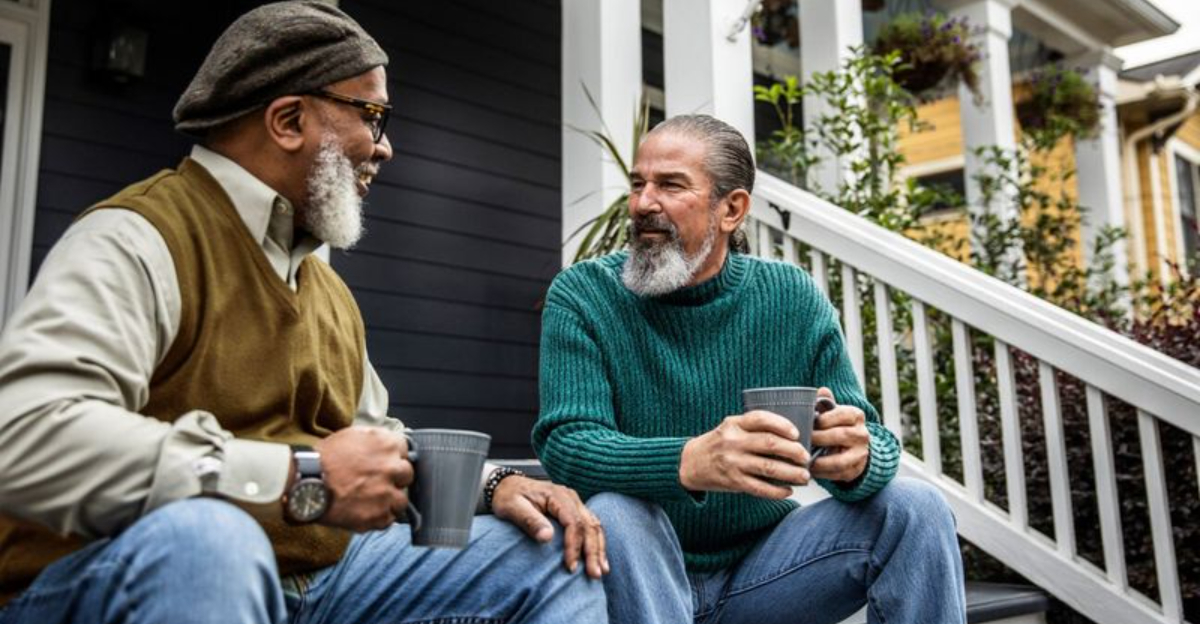20 Reasons Older Men Prefer to Be Alone
As the years pass, many older men find that solitude shifts from feeling like loneliness to embodying comfort and peace.
It’s not about shutting the world out but embracing a newfound understanding of what truly matters in life. The tranquility and simplicity that come with being alone can offer a profound sense of clarity, unburdened by the need for constant social interaction.
This isn’t about isolation—it’s about setting boundaries and appreciating the calm that solitude brings.
1. They’ve learned that peace is better than forced company

Over time, many older men find that peace holds more value than the discomfort of forced interactions. The gentle rustle of leaves or the soft hum of distant city life becomes more satisfying than unwanted chatter. In solitude, there is no need to navigate the complexities of social expectations or the subtle undercurrents of misunderstandings.
This newfound appreciation for quiet allows them to recharge, unencumbered by obligations that no longer serve them. It’s a personal choice, reflecting a mature understanding of peace over societal pressure.
Imagine the serenity of waking up to the sound of birds rather than an alarm clock. This preference for peace comes from years of experience, knowing that meaningful connections are more valuable than filling silence with unnecessary noise. In this tranquility, there’s clarity—a space where they can truly be themselves without compromise.
2. They’re tired of explaining themselves

After years of having to justify their thoughts and actions, some older men find solace in simply being understood by themselves. Explaining one’s choices, from trivial to profound, can become exhausting over time. The comfort of not having to articulate every nuance of their being is liberating.
In solitude, there’s a freedom from the need to clarify or defend one’s life decisions. It’s a space where they can reflect without the constant pressure to be understood by others.
The walls of their environment may hold the echoes of past conversations, but they now listen only to the voice that truly matters—their own. This self-awareness, developed over decades, becomes a source of inner peace, allowing them to engage with the world on their terms, when they’re ready.
3. They’ve outgrown chasing approval

With age comes the realization that seeking approval is often a fruitless endeavor. Many older men no longer feel the need to impress others or conform to external expectations. The waves gently lapping at their feet remind them that life’s ebb and flow is natural and not dictated by others’ opinions.
This freedom from seeking validation is empowering. It allows them to focus on what truly brings joy and fulfillment. They walk with a lightness that comes from releasing the burdens of others’ judgments.
The wisdom gained through years of experience reinforces the belief that self-worth is not determined by external validation but by one’s own understanding and acceptance. In this newfound independence from societal pressures, they find a deeper sense of self, unshackled and authentically free.
4. Quiet doesn’t feel empty anymore
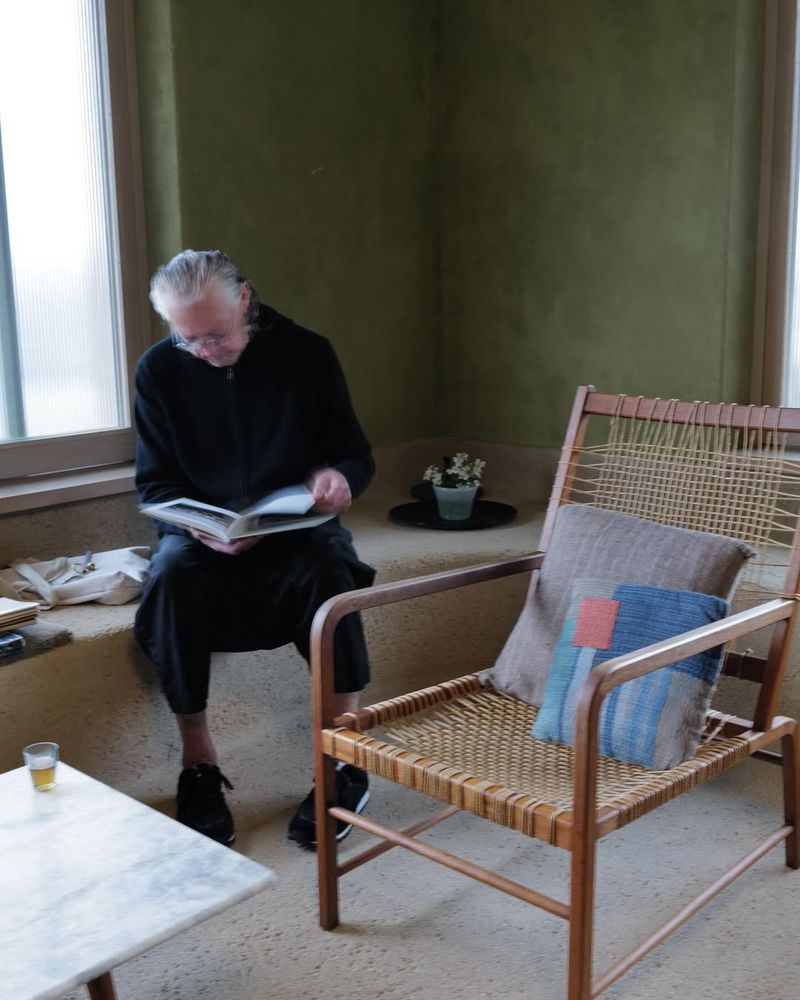
Quiet spaces once felt like voids, but now they are filled with tranquility and reflection. An older man sits by the window, sipping tea, finding solace in the silence that once seemed daunting. The stillness speaks to him in ways that words never could.
In this quietude, they discover layers of their own personality, unwrapped slowly over time. These moments alone are not empty; they are filled with introspection and gentle self-discovery.
Each sip of tea, each glance at the horizon, enriches their understanding of who they are. The silence holds a melody all its own—a comforting tune that only they can hear. It’s this profound peace that turns solitude into a cherished companion rather than an unwanted guest.
5. They’d rather be alone than misunderstood

To be misunderstood repeatedly is a frustration many older men prefer to avoid. Standing atop a mountain, they find themselves surrounded by nature’s vastness, which feels more understanding than any crowd. Here, the air is clear, and so are their thoughts.
In solitude, there’s no misinterpretation or need to rectify misconceptions. They can be themselves without the fear of being judged or misunderstood. This clarity is invaluable, providing them with a space where they are truly comprehended, even if it’s just by themselves.
Nature listens without prejudice or interruption. It’s in these solitary moments that they find the acceptance they seek—not from others, but from within. This self-acceptance becomes a cornerstone of their contentment, reinforcing their preference for solitude over the chaos of misunderstanding.
6. They’ve been through enough to value simplicity
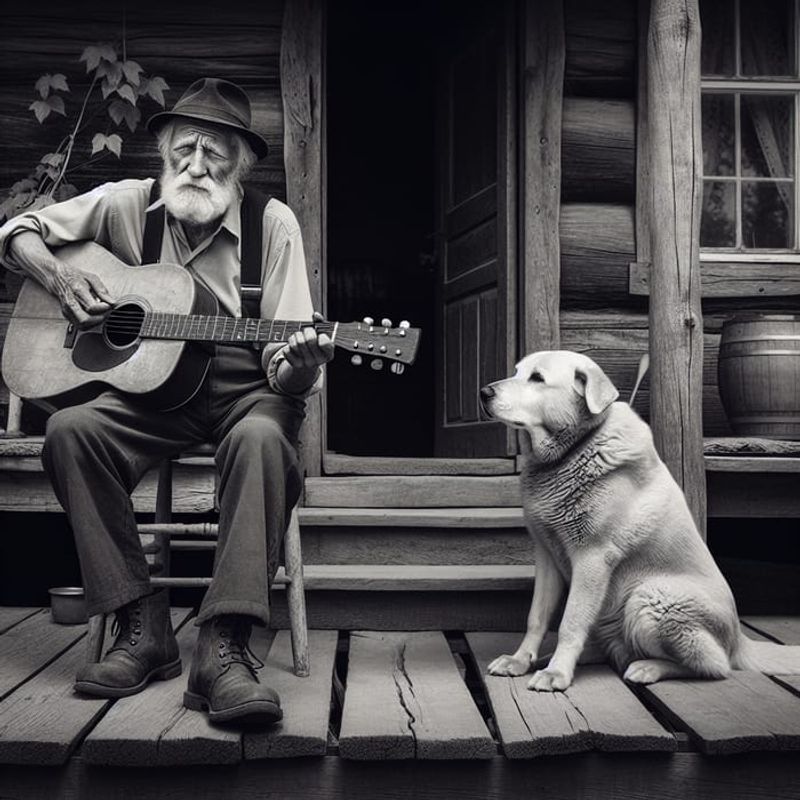
Life’s complexities have taught older men to cherish simplicity. In the gentle act of pruning a rosebush or watering plants in their garden, they find a profound sense of peace. The simplicity of nature mirrors their desire for a life unencumbered by unnecessary complications.
Every flower that blooms is a testament to their life’s journey—a journey that values simplicity over the chaos of modern life. They’ve learned that it’s often the simplest pleasures that bring the most joy.
Stripping away the superfluous, they focus on what truly matters: moments of quiet reflection, the rustling of leaves, and the satisfaction of nurturing life. In this simplicity, they’ve found a richness that complexity could never offer, embracing a lifestyle that feels authentic and fulfilling.
7. They’re done with emotional performance
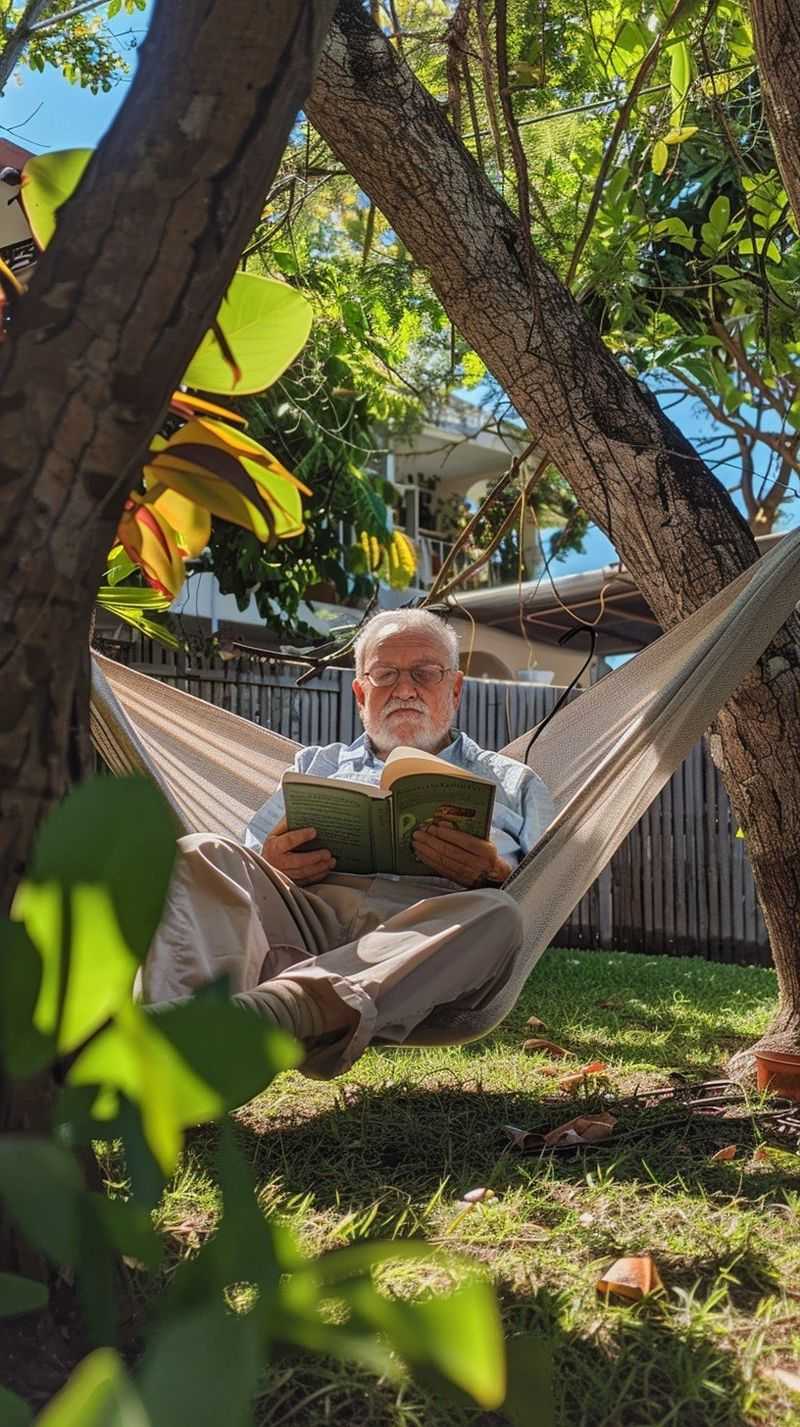
The exhausting cycle of emotional performance no longer appeals to older men. In a hammock, with a book in hand, they relish the freedom to be authentic without the need to project a persona for others. It’s a retreat from the roles they once felt obligated to play.
This authenticity is refreshing, allowing them to connect with themselves on a deeper level. They no longer need to perform to meet others’ expectations or fit into societal molds.
The hammock sways gently, mirroring the ebb and flow of their thoughts. It’s a perfect metaphor for the balance they’ve achieved between being and doing. In solitude, they embrace the freedom to be themselves, unhindered by the demands of emotional charades. This liberation opens doors to genuine self-expression, where true happiness resides.
8. They’ve found comfort in their own routines
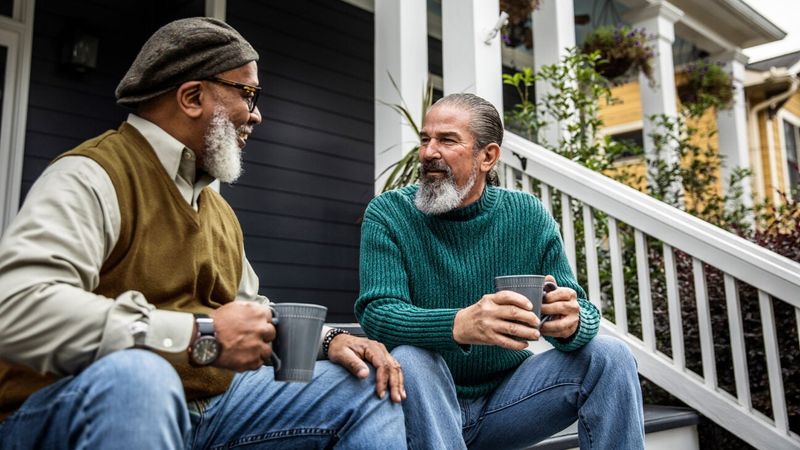
Routines, once seen as mundane, become a source of comfort and stability for older men. Each morning, as they brew coffee and sit by the sunlit kitchen window, they find pleasure in the familiarity of their rituals.
These routines are a canvas on which they paint their days with the colors of consistency and predictability. The rhythm of their life is soothing, offering a sense of control and peace that they deeply appreciate.
There’s no rush to accommodate the unpredictable whims of others. Instead, they savor the slow mornings, the quiet afternoons, and the reflective evenings. In these routines, they find a sanctuary that shields them from the chaos of the outside world. It’s a simple yet profound comfort that solitude magnifies, making their own company the most cherished.
9. Trust takes time—and energy they don’t always have

Trust is a currency that has been spent cautiously over the years. Sitting on a park bench, feeding pigeons, an older man contemplates the effort required to build trust anew. With age, the energy to invest in uncertain connections wanes.
This reluctance isn’t born from cynicism but from experience. They understand the value of trust and the effort it takes to nurture it. The pigeons, in their simple trust, remind them of bonds that are uncomplicated and honest.
For older men, solitude offers a reprieve from the intricate dance of trust and doubt. It’s a space where they can reflect on past connections without the pressure to forge new ones. In this reflective solitude, they find clarity and peace, appreciating relationships that have stood the test of time.
10. They don’t want to be anyone’s project
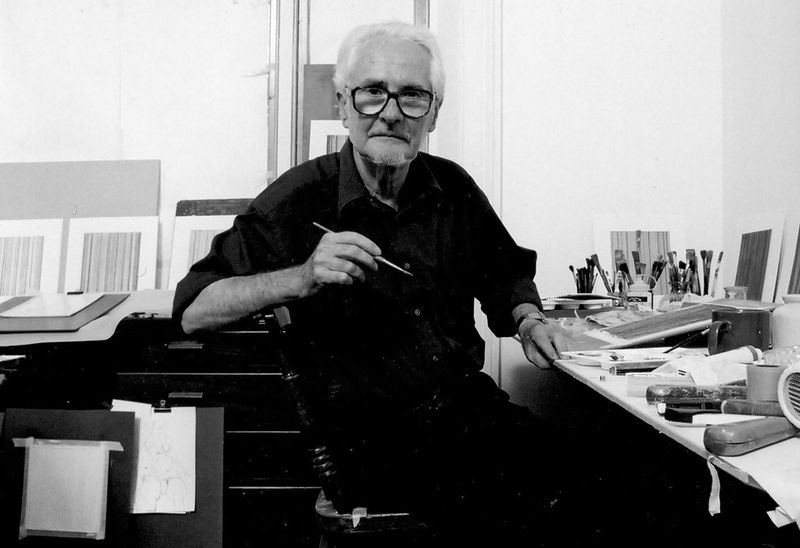
Older men often resist becoming someone’s project, preferring to live on their terms. In a sunlit studio, an older man paints, each stroke on the canvas a testament to his independence. He’s not looking to be fixed or guided—he’s content as he is.
The studio is his sanctuary, a place where he can express himself freely without interference or unsolicited advice. This autonomy is precious, allowing him to explore his passions without external pressure.
The paintbrush in his hand is a symbol of self-determination, crafting a life that reflects his true self. Solitude provides the freedom to pursue interests without becoming entangled in others’ expectations. It’s in this creative independence that he finds joy, knowing that he is not a project, but a masterpiece in his own right.
11. They know how to enjoy their own company
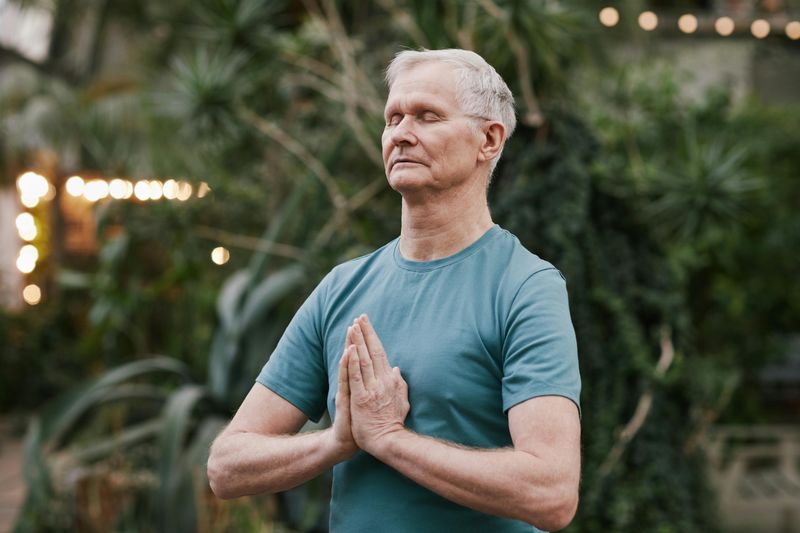
Enjoying one’s own company is an art that many older men have mastered. Sitting by a campfire under a starlit sky, they find companionship in the crackle of the flames and the whisper of the wind. In solitude, they discover a world rich with introspection and peace.
These quiet moments allow them to connect with themselves in profound ways, without the need for external validation. The stars become familiar friends, each twinkle a reminder of the vastness and beauty of life.
It’s in these solitary experiences that they find joy, free from the demands of social interaction. The campfire’s warmth is matched only by the contentment within, a testament to their ability to find fulfillment in their own presence. Solitude, rather than lonely, becomes a space of comfort and self-discovery.
12. They’ve experienced love—and loss—and know how to carry both

Love and loss are twin threads that older men have woven into the fabric of their lives. Holding a faded photograph, they smile gently, remembering the sweetness of love and the lessons of loss. These experiences have shaped them, giving depth to their solitude.
In solitude, they carry these memories, each one a testament to the rich tapestry of their past. The quiet allows them to honor these emotions without distraction, embracing both joy and sorrow as integral parts of their journey.
They’ve learned to find peace in this balance, accepting that love and loss coexist within them. This acceptance is a quiet strength, allowing them to move forward with grace and understanding. Solitude becomes a space where they can reflect on these experiences, finding wisdom and comfort in their dual presence.
13. They value their independence more than validation

Independence is a cherished value that many older men hold dear. Hiking alone on a forest trail, they savor the freedom and self-reliance that solitude offers. There’s no need for validation from others; their journey is theirs alone.
This independence allows them to pursue their passions and interests without compromise. The forest becomes a metaphor for their life—wild, untamed, and full of potential.
They’ve learned that true fulfillment comes from within, not from the approval of others. Solitude provides the space to explore this self-reliance, reinforcing their belief in their own capabilities. In this independence, they find a sense of purpose and contentment that external validation could never match.
14. They don’t feel the need to prove their worth
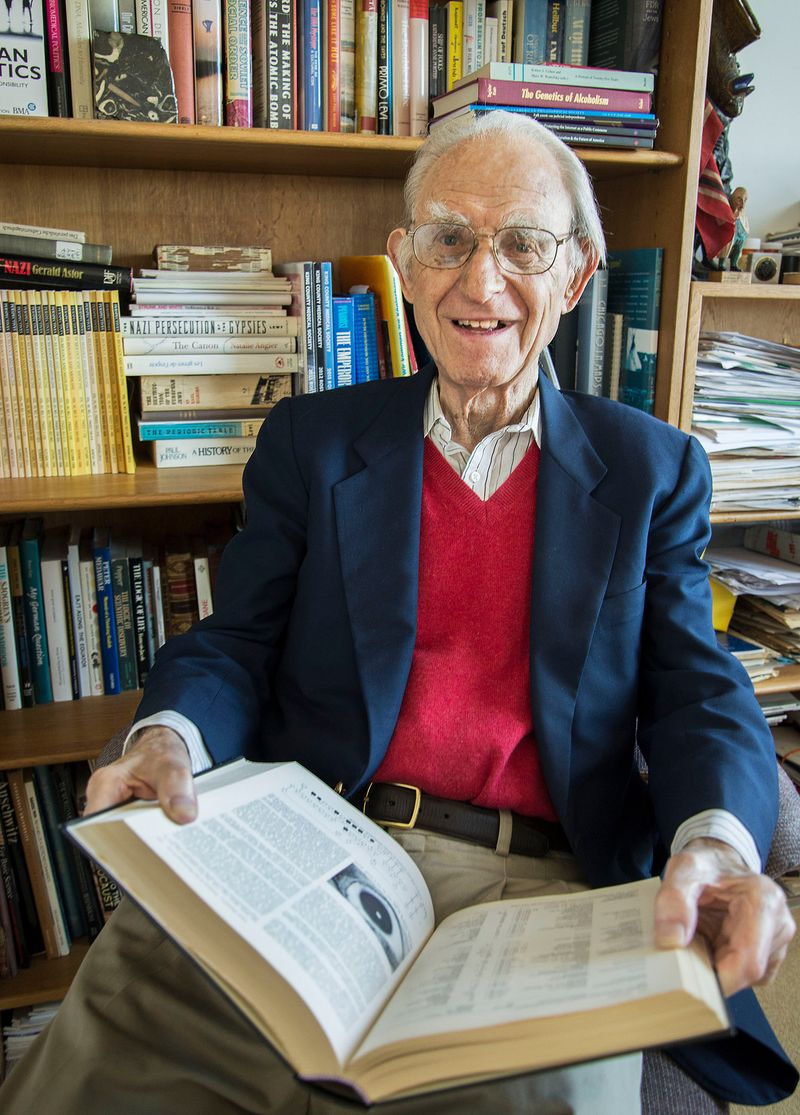
Through the years, older men come to understand that their worth isn’t something to be proven but inherently known. Sitting in a library, enveloped by the stories and wisdom of countless authors, they find assurance in their own narrative.
The need to demonstrate their value diminishes, replaced by a quiet confidence. They no longer seek external acknowledgment, finding comfort in the knowledge and experiences they’ve accumulated.
In this solitude, there’s a liberation from the pressures of proving oneself. The library becomes a sanctuary where they can appreciate their achievements without the need for validation. This inner confidence becomes a beacon, guiding them through life with grace and assurance, unburdened by the need to justify their worth.
15. They’ve learned that drama is optional
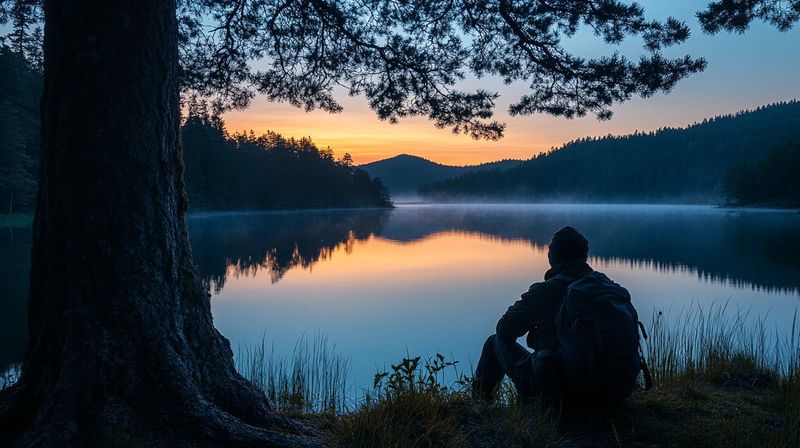
Drama, with its swirling chaos, has lost its allure for older men who now seek tranquility. Sitting by a serene lake at dawn, they find peace in the stillness—a stark contrast to the noise of unnecessary conflict.
They’ve realized that drama is a choice, not a necessity. The calm waters reflect their desire for a life free from turbulence, where peace prevails.
This preference for tranquility over turmoil comes from years of experience, understanding that life’s beauty is often found in simplicity. Solitude offers a refuge from drama, allowing them to embrace a life where serenity reigns. The lake’s surface is undisturbed, much like their resolve to prioritize peace over chaos.
16. They don’t want to settle—and won’t
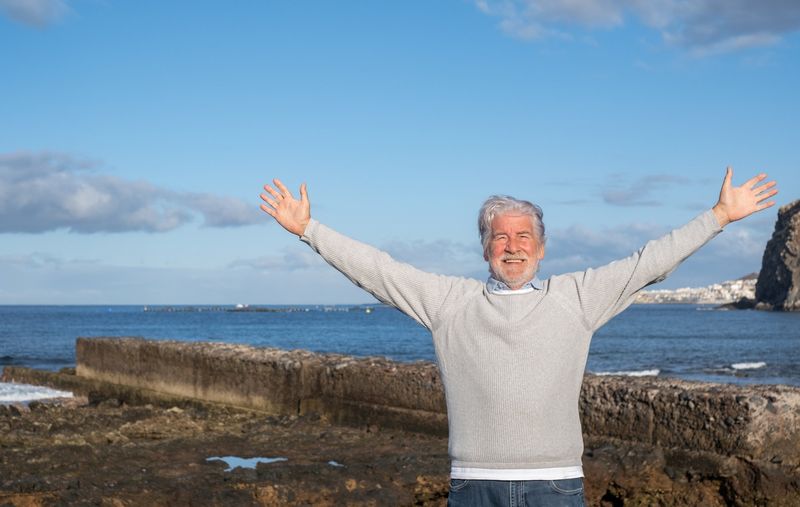
Settling is not an option for those who have seen the breadth of life’s possibilities. Standing on a cliff edge, gazing at the vast ocean, an older man embodies the spirit of exploration and the refusal to accept less than what he desires.
This determination is a hallmark of their journey, guided by the lessons of past experiences. The ocean, with its endless horizon, symbolizes the opportunities that await those who refuse to compromise.
In solitude, they find the strength to hold true to their ideals, unafraid to seek what truly fulfills them. This resolve to not settle is a testament to their courage and belief in a life that aligns with their values. The cliff’s edge, while daunting to some, represents the boldness of their choices.
17. Their friendships have grown deeper than their need for constant companionship

For older men, true friendships have evolved beyond the need for constant companionship. Sitting by a fireplace, enveloped in warmth, they reflect on the deep connections that time has nurtured.
These friendships are rich and meaningful, requiring no frequent validation. The photographs of lifelong friends capture moments of laughter and support, each frame telling a story of bonds that have stood the test of time.
In solitude, they find space to appreciate these relationships, knowing that true friends are always present, even in absence. This depth of understanding fosters a profound sense of connection, where silence is as comfortable as conversation. It’s in these cherished friendships that they find fulfillment, without the need for continuous company.
18. They don’t fear solitude—they’ve made peace with it

Solitude is not something older men fear, but embrace with open arms. Writing in a journal by a gentle stream, they find peace in the quiet moments of reflection. The rustling leaves and flowing water are companions in this serene solitude.
They’ve made peace with being alone, finding it a time for introspection and growth. Each page of the journal captures thoughts that are theirs alone, free from judgment or interruption.
This tranquility allows them to explore their inner world, fostering a sense of peace that enhances their well-being. Solitude becomes a sanctuary, not an exile, where they can connect with themselves in meaningful ways. It’s this acceptance of solitude that empowers them to live authentically and fully.
19. They’ve built a life that feels enough
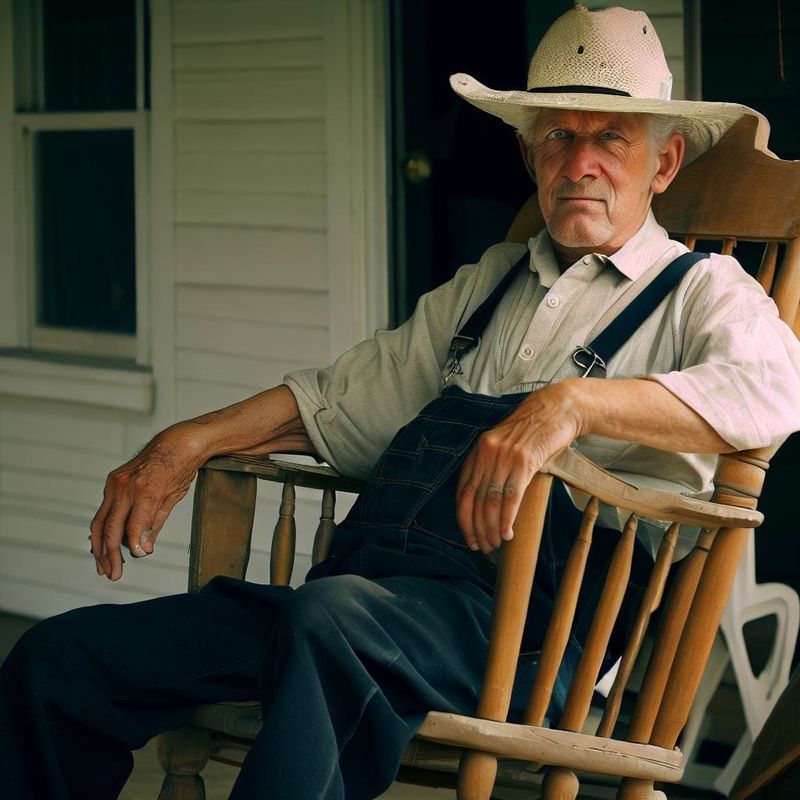
Contentment comes from building a life that feels complete and fulfilling. Sitting on a porch, overlooking a sprawling countryside, an older man smiles with a sense of satisfaction. The landscape before him is a reflection of the life he’s carefully crafted.
There’s no longing for more, only appreciation for what is. This life, with its simplicity and purpose, feels enough. The countryside’s vastness mirrors the richness of his experiences, filled with moments that have shaped him.
In solitude, he finds joy in the present, unburdened by the pursuit of more. It’s in this acceptance of what he has that he discovers true happiness. The porch becomes a vantage point from which he can view the world with gratitude, knowing that his life is complete and richly satisfying.
20. They understand that being alone isn’t the same as being lonely
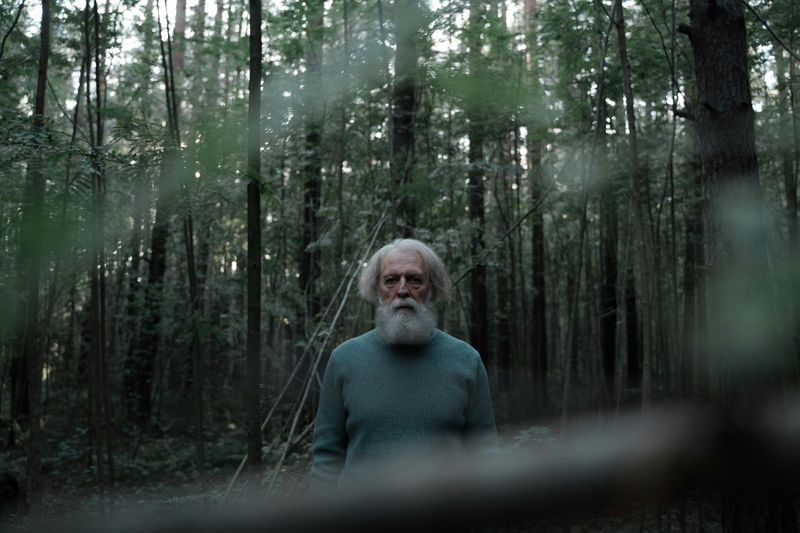
Alone yet not lonely, older men understand the profound difference between the two. Walking through a peaceful forest, they find contentment in the solitude that others might mistake for loneliness. The gentle crunch of leaves underfoot accompanies their thoughts, rich with introspection.
Solitude becomes a companion, offering comfort and clarity. It’s a choice, not a circumstance, allowing them to connect with themselves on a deeper level. The forest’s tranquility mirrors the peace within them.
They’ve learned that being alone is an opportunity for growth and reflection, not isolation. This understanding transforms solitude into a space of comfort, where they can nurture their spirit and find joy in their own company. It’s a peaceful walk, both literally and metaphorically, leading them to a place of inner serenity.

